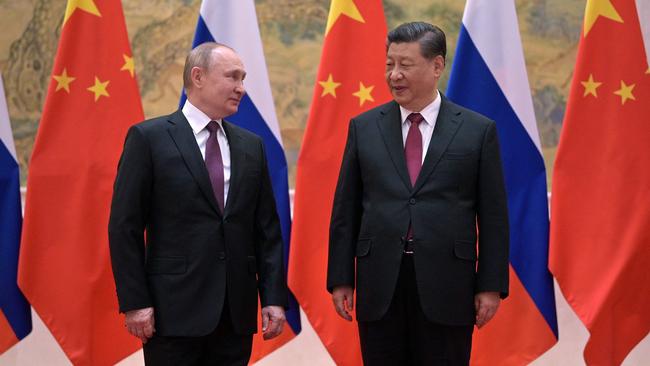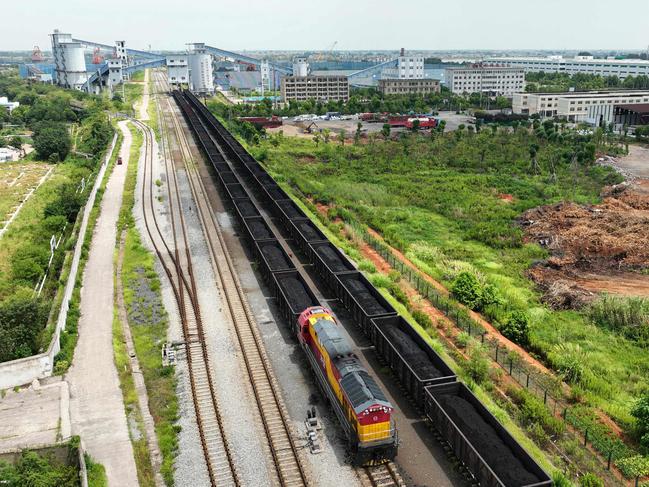
The new Labor government has a unique opportunity to empower stable and emerging democracies in Australia’s transition to a green economy. In the past week, its Climate Change Bill aimed at legislating a 43 per cent reduction in emissions by 2030 passed in the lower house. The US Democrats are also closing in on a deal to slash emissions by about 40 per cent by 2030.
Debate is raging in the US about the impact of President Joe Biden’s green energy ambitions in an inflationary environment. His master plan for a green new deal, the $US2 trillion Build Back Better Bill, was rejected as unrealistic and unaffordable.
Its successor, the Inflation Reduction Act of 2022, will cover health and climate change at a cost of $US485bn, with $US369bn in funding for climate and clean energy provisions. Importantly, it is set to boost US industry in domestic battery manufacturing for electric vehicles, a move that could reduce China’s dominance of the field. It follows a decision last month to advance US semiconductor manufacturing with a $US280bn bill to support local industry.
The Australian Climate Change Bill is less detailed, but there is increasing international pressure to make the transition to a greener economy pro-democratic by stimulating local industry and favouring trade with countries that have shared political values. Encouraging investment in renewable energy resources produced by democracies and diverting funds away from autocratic regimes is key to pro-democratic reform.
The shape of environmental policy is complicated by the contribution of autocratic regimes and associated entities such as Chinese-owned companies to renewable resource materials and critical minerals. China dominates the production of many critical minerals vital for the green revolution. The BP Statistical Review of World Energy shows it was the main driver of solar and wind capacity growth in 2021 (36 per cent and 40 per cent, respectively.) However, fossil fuels accounted for 82 per cent of primary energy use globally and China remains the biggest global emitter by far. It emits more greenhouse gas than the entire developed world, according to research by Rhodium Group.
China is the world’s biggest producer and consumer of coal. It is responsible for roughly a third of global emissions. It uses five times as much coal as India and six times that of the US. Global Energy Monitor reported that in 2021, more than half of the world’s newly commissioned coal activity occurred in China.
The BP Statistical Review of World Energy shows China and India accounted for more than 70 per cent of the growth in coal demand in 2021 and much of the increase in production, which was mostly used domestically. The International Energy Agency states coal demand in China increased by 4.6 per cent last year to reach an all-time high of 4230 Mt.
And there is little sign China is committed to reducing emissions. China Dialogue reported on National Bureau of Statistics figures showing that this year, it mined 2.19 billion tonnes of coal between January and June, an increase of 11 per cent year on year.
The IEA reported in March that while CO2 emissions on a per capita basis fell to an average of 8.2 tonnes in advanced economies, it was 8.4 tonnes in China.
There is good reason for China to shun emissions targets that would require it to give up coal. The energy produced is cheap, reliable and plentiful. China has 1118 coal-fired power stations in operation according to data compiled by Global Energy Monitor. The US has 225. Australia has only 19, but if you hooked on the Greens’ hysteria, you would think we were burning up the planet.

Given its reliance on coal, China using the flimsy pretext of Nancy Pelosi’s sleepover in Taiwan to shut down climate discussions with the US is hardly surprising. Reliable domestic coal supply gives China the great advantage of energy independence. Its ready access to fuel reserves and nuclear energy powers its rise as a formidable military force. Anyone who believes China will sacrifice its ambition of global superpower status to make nice with friends of Gaia is deluding themself.
In military drills last week, China blockaded Taiwan and fired ballistic missiles over it. The Taiwanese Defence Ministry reported that it was forced to scramble jets after 49 Chinese aircraft entered its defence zone. It came after Chinese cyber attacks on Taiwanese government websites ahead of Pelosi’s brief visit to the country, where she affirmed the status quo regarding American relations with the island territory.
Like its autocratic ally, Russia, China has been emboldened by President Biden’s botched withdrawal of troops from Afghanistan. It was held up as proof in Chinese and Russian state media that America could be beaten by much smaller nationalist forces prepared to use guerilla tactics in a long war scenario. Curiously, neither autocratic regime has applied the lesson to itself. Rather, Russia and China are taking advantage of the power vacuum left by America’s withdrawal from the theatre of foreign war to instigate their own.
Taiwan scholars do not deny the ambiguities and complexity of the country’s status in relation to China. However, it is precisely the kind of militant behaviour demonstrated by China against its smaller neighbours that should provoke a rethink of climate policy. Politicians would be well advised to view and review all major policies through a lens of realism and ensure progressively more favourable trading conditions with allied democracies.




Australia and the US are forging ahead with climate change legislation that will significantly transform the economy and industry. Yet they face increasing pressure to incorporate trade terms that will draw democracies together in an alliance against autocratic states.